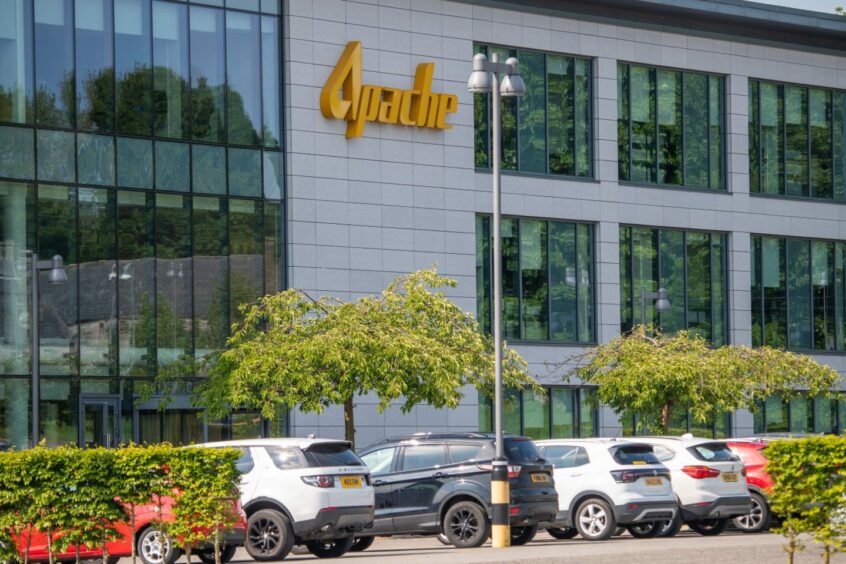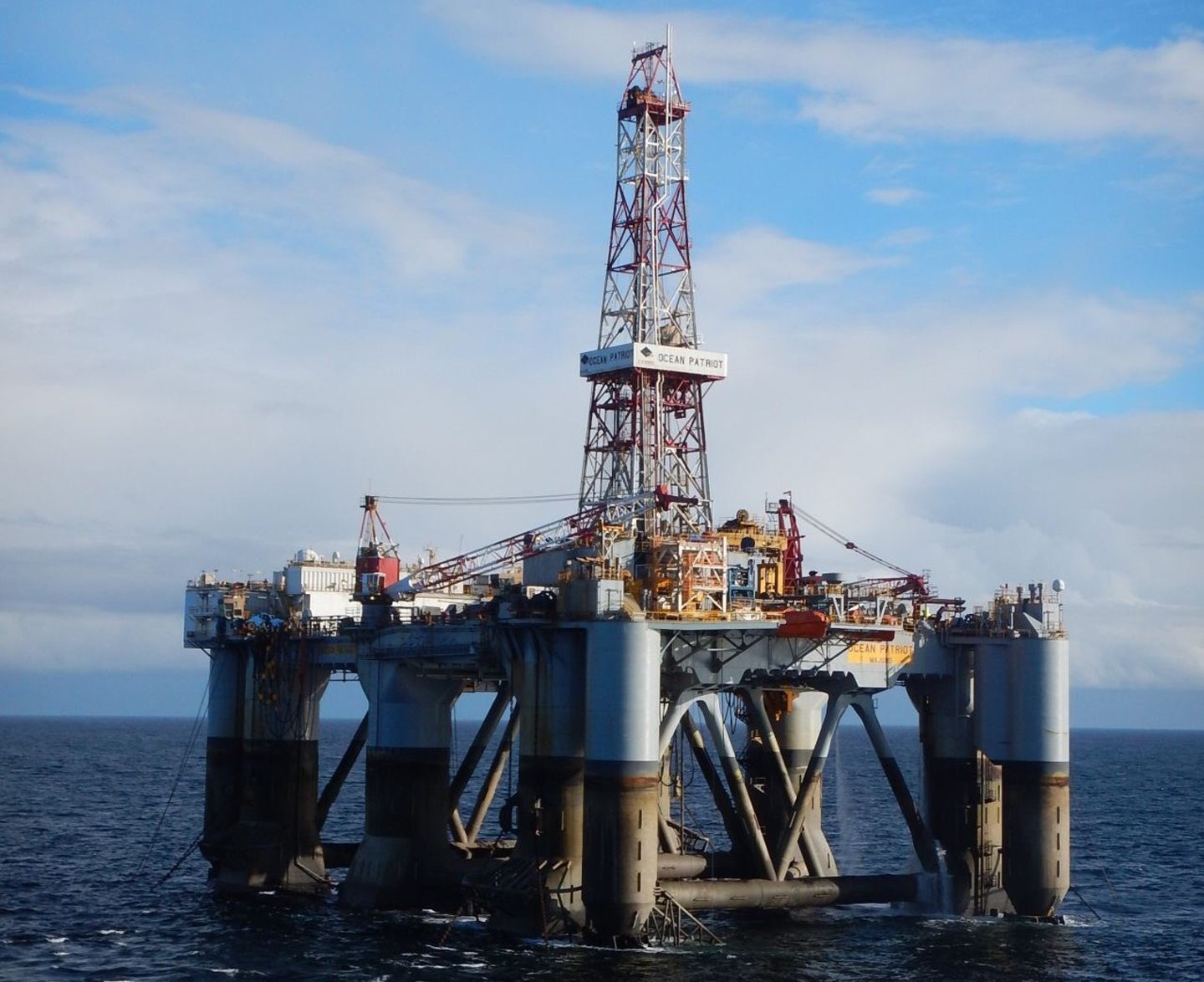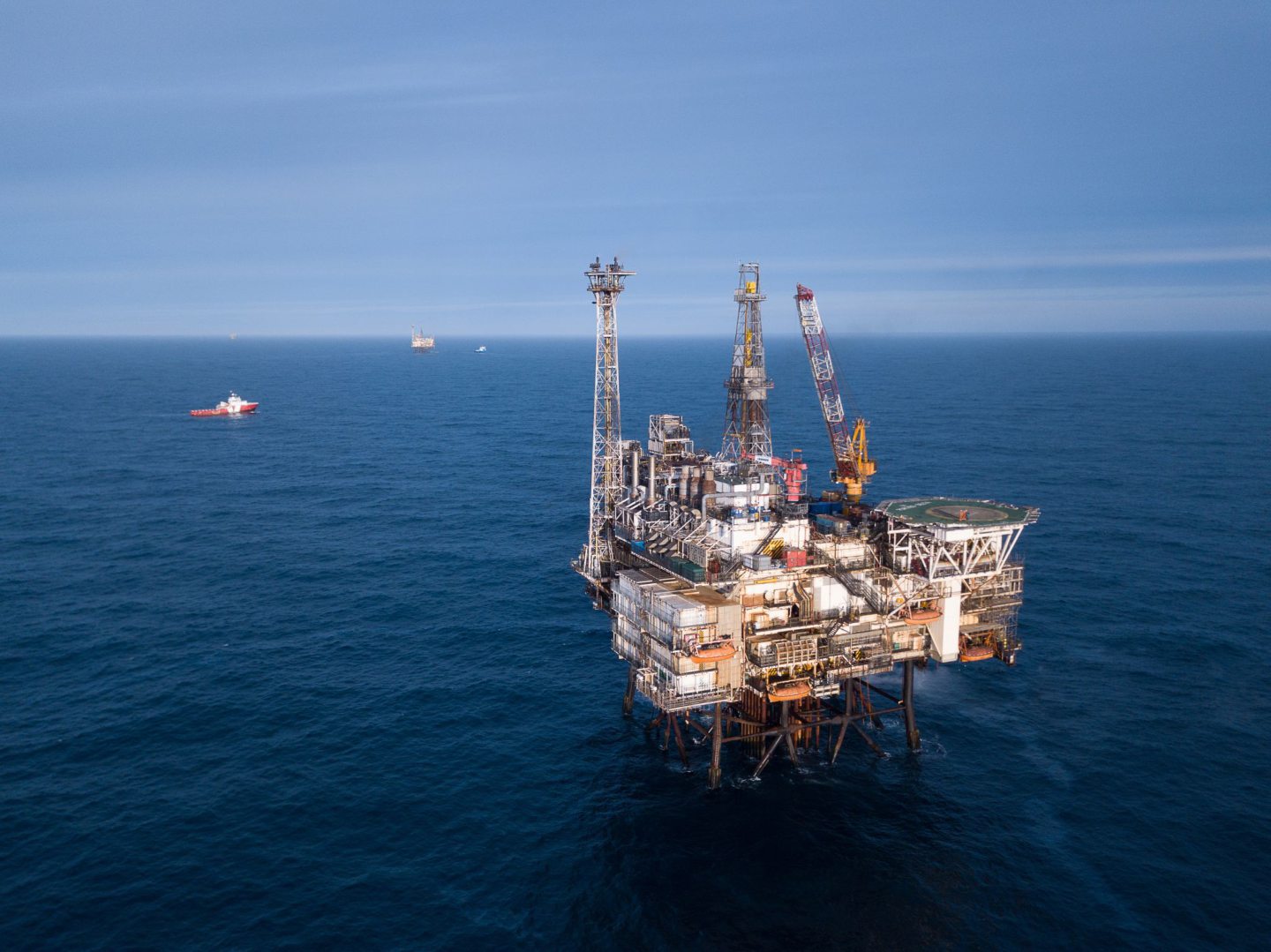
The NSTA regulator is unlikely to seize Apache’s (Nasdaq:APA) assets, despite the US firm suspending all North Sea drilling in an expected breach of licensing rules, according to industry commentators.
On Friday, Energy Voice revealed that the US-headquartered firm had cut around 30 jobs as it decided to stop drilling in the UK – a decision made in advance of the windfall tax price floor being introduced last week.
Suspension of drilling – including platform workovers to optimise production from fields like Beryl and Forties – is expected to be in breach of asset stewardship rules under the North Sea Transition Authority (NSTA).
These obligations demand Maximising Economic Recovery (MER) from the North Sea, and workover plans have been key in stemming decline at Apache’s Forties and Beryl fields.
It leaves a question mark over next steps for the Apache portfolio, and a sale is looking likely, said one commentator, for the firm which operates out of Kingswells in Aberdeen.
Others noted that, given Apache has invested in the North Sea for 20 years, this move is “surprising” and “another blow to the sector”.
The NSTA, which has powers to withdraw licences and remove operators from assets, said: “We do not comment on individual cases.”
It would not, when asked, confirm whether it is investigating Apache’s circumstances, citing commercial confidentiality reasons.
‘They have an obligation under MER’
Apache pointed to the “burdensome regulatory and tax regime” for its reasons to suspend drilling, and told workers that “rising costs” were part of the decision for redundancies.
Stephen Jewell, managing director of consultancy Well Decom, noted that Apache “has an obligation under MER to continue investment in the UK to maximise economic recovery from the fields under licence to them”.
He added: “Apache has surely not told NSTA the same story they told their staff? If they did, then (the) NSTA should be pointing out, in no uncertain terms, Apache’s licence obligations.”
Mr Jewell also noted that the NSTA’s ultimate sanction is to withdraw Apache’s licences – “something they are unlikely to do”.
Apache will (grudgingly) meet minimum obligations
Why wouldn’t Apache be penalised if they’re breaking the rules?
“The UK portfolio is likely to be put up for sale,” explained Ashley Kelty of investment bank Panmure Gordon.
“If Apache look like they may have the assets confiscated with no value, it will simply end up allowing potential buyers to lowball any offers (as they could step in to take over in the event that assets were confiscated).”
Workers affected noted that Apache is still making a “chunk of cash” from the UK portfolio, which accounted for 14% of production for the firm in 2022.
However, the firm is seeking to instead focus on more lucrative areas like Suriname, onshore US and Egypt.
“I can see how the workers may think it’s generating lots of cash,” said Mr Kelty, “but in the context of the wider Apache portfolio, the UK portfolio is probably marginal at current tax rates, given the low levels of capex that the workovers will entail and ergo the investment relief will be small.
“That said, I doubt that it will get to a point over MER requirements and asset confiscation as I suspect the NSTA will highlight the minimum commitments to Apache management and Apache will, grudgingly, meet that.”
Apache changes tack after 20 years of North Sea investment
Apache entered the North Sea in 2003 with the acquisition of the Forties field from BP.
Yvonne Telford, senior analyst at Westwood Global Energy Group noted “the change in investment stance is surprising as Apache has been committed to re-investing in its UK assets for 20 years now”.
She said the drilling suspension is “another blow” to the UK sector, and that ongoing infill and workover plans on Beryl and Forties platforms “were key to managing the production decline from the fields”.
But the introduction of the windfall tax – or Energy Profits Levy – which has taken North Sea taxation to 75%, has proved too much.
It “means the UK is no longer attractive to Apache in its global portfolio,” she said.
“The UK is an ultra-mature basin and therefore faces more challenges to maximise economic recovery of gas and oil and therefore should not be compared to other higher tax regimes such as Norway.
“The EPL floor prices proposed by the Government last week are unlikely to move the dial for near term investment either.”
In an updated statement, sent Friday, Apache said: “We had to make the hard decision to reduce staff. These decisions are always difficult, and we will work to support those employees who were affected.
“Our leadership held a town hall this week to answer employee questions and discuss the strategy for our operations in the North Sea. We discussed the challenging UK macro environment with its increasingly costly and burdensome tax and regulatory regime and that we allocate capital based on the best potential returns.
“This was a business decision as these assets have become less competitive in comparison to the rest of our portfolio. Our priority remains to maintain a safe working environment while operating our late-life assets cost efficiently and effectively.”
Recommended for you


 © Supplied by Diamond Offshore
© Supplied by Diamond Offshore © Supplied by DCT/ Kami Thomson
© Supplied by DCT/ Kami Thomson © Supplied by Apache
© Supplied by Apache